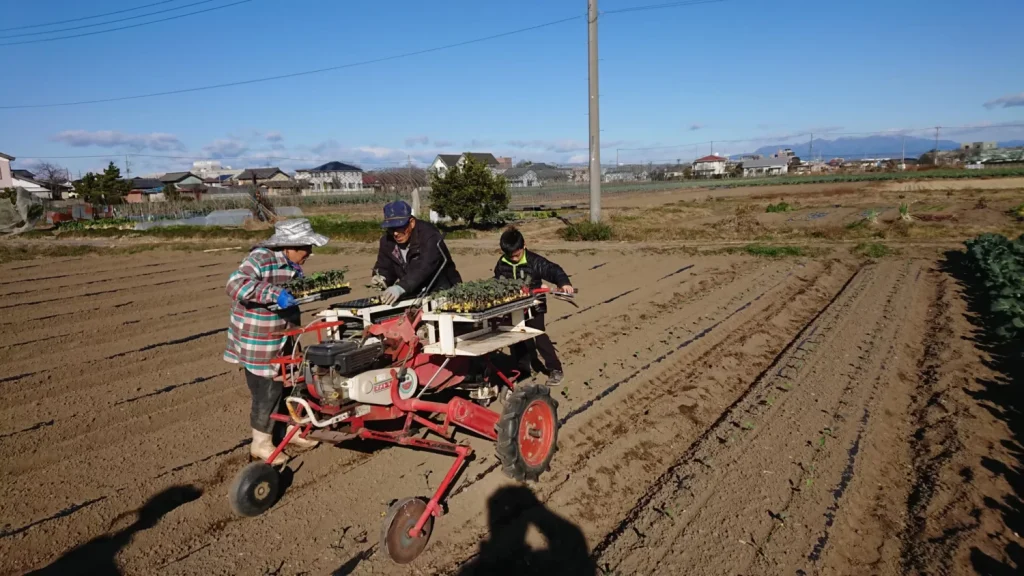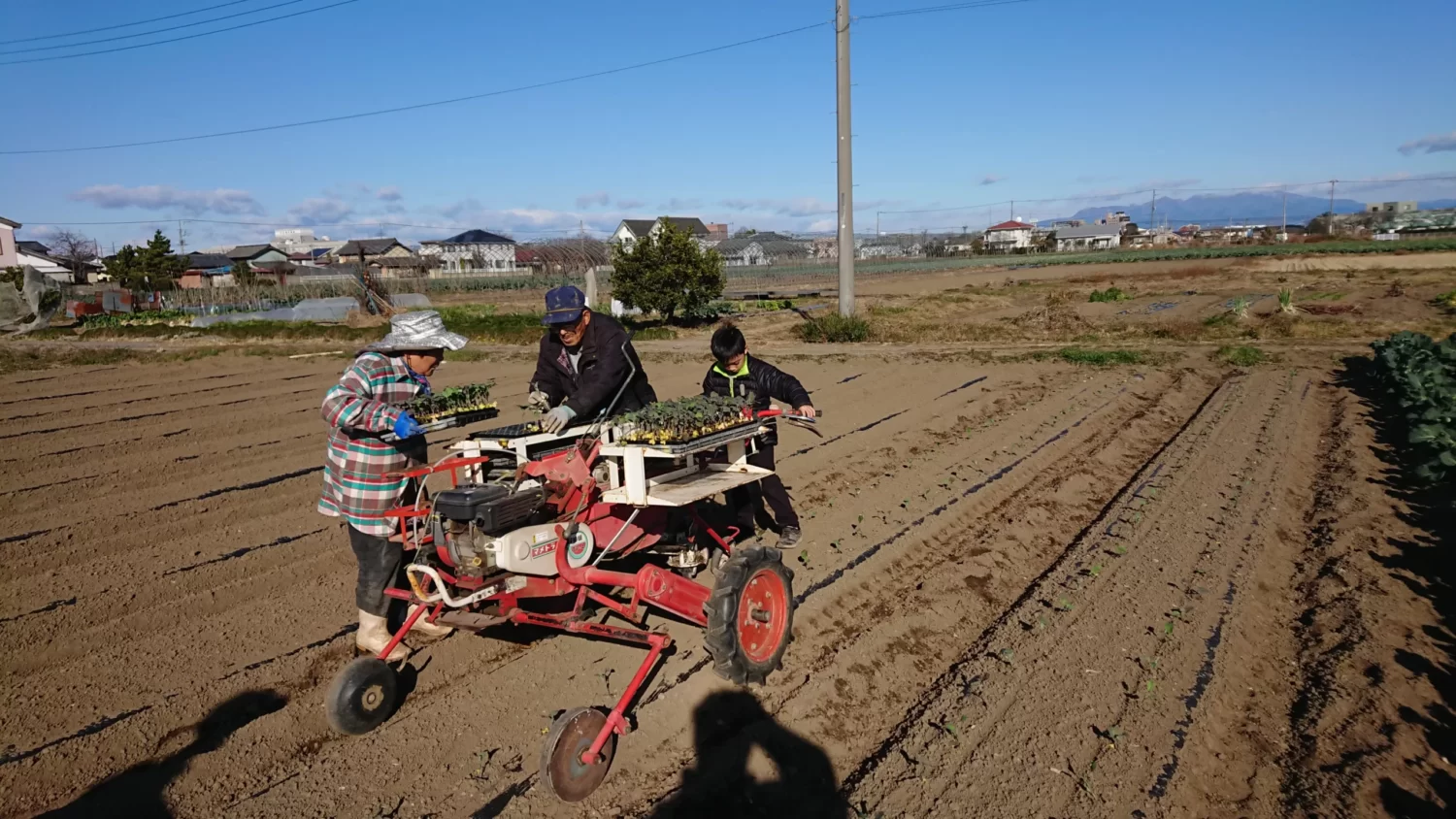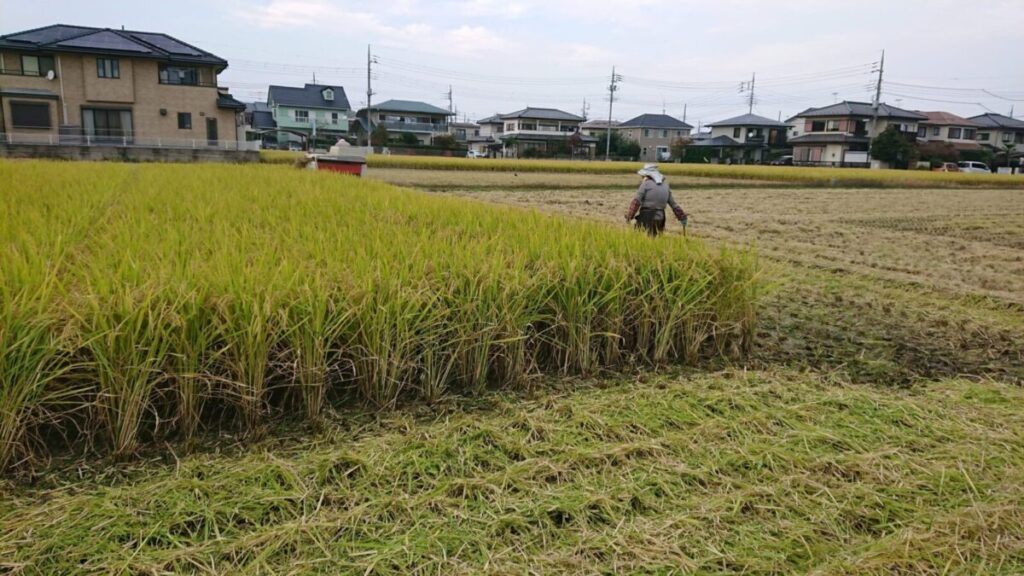
Let me briefly introduce my parents, whom my kids and my siblings’ kids call “Piggy’s Grandpa” and “Piggy’s Grandma.”They’re a farming couple from northern Saitama, in the Kanto region of Japan, and they’re still working the fields.
They used to raise pigs, but now they mainly grow and sell broccoli, Welsh onions (negi), cabbage, and corn.
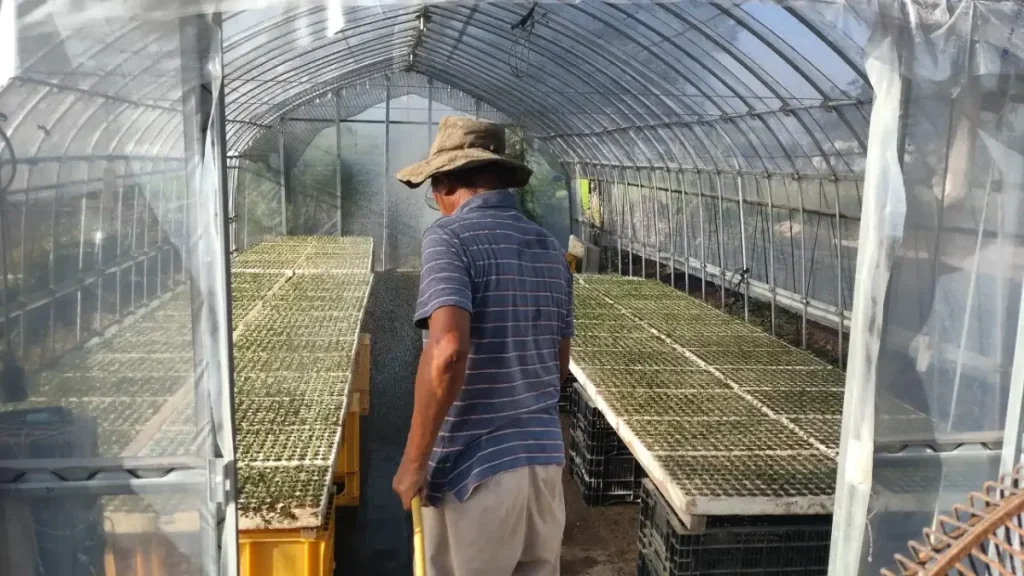
Piggy’s Grandpa
He’s in his eighties and was born as the eldest son of a farming family that’s been around for who-knows-how-many generations. He’s got that old-school Japanese farmer vibe – strict, even with a bit of “iron fist” discipline when we were kids. For better or worse, he’s always been the head of the family. He’s mellowed out a bit lately, but he still wears the pants, especially with Grandma. He’s also a whiz with machines and loves tinkering with DIY projects and fixing stuff around the house.
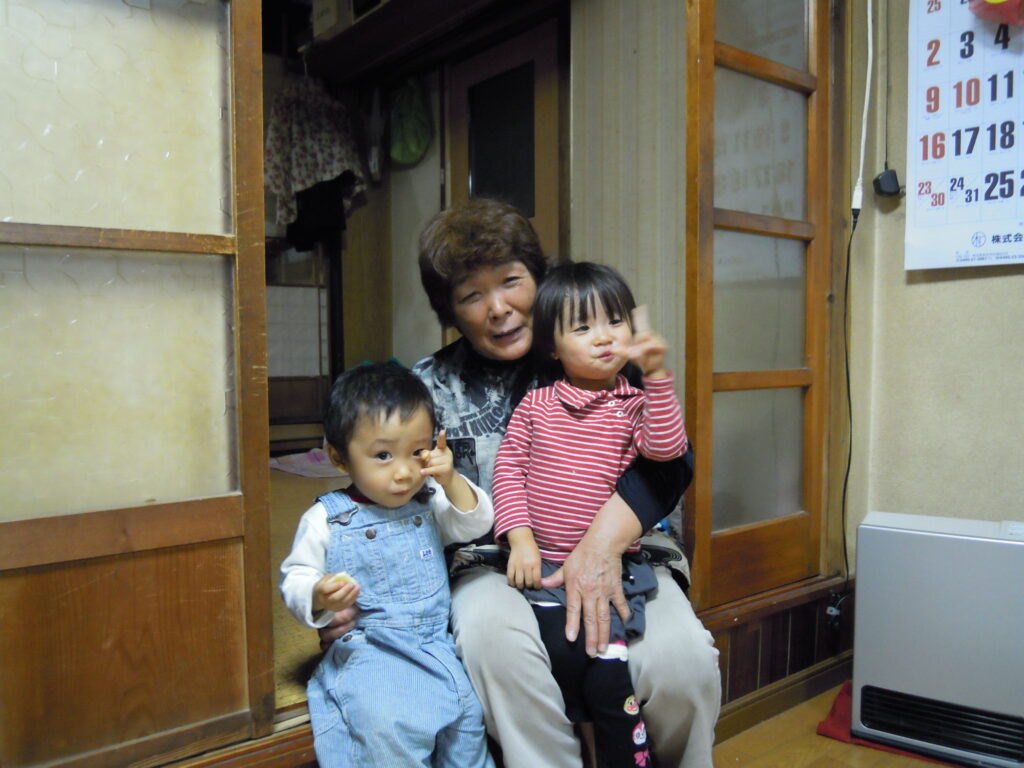
Piggy’s Grandma
She’s in her seventies and has experienced some health changes in recent years. Currently, as she has publicly shared, my mother has dementia, but she’s cherishing each day. She’s from the next town over, about a 20-minute drive from Grandpa’s place, and she married into the family about 55 years ago. She has a cheerful personality and enjoys interacting with her grandchildren. For the record, her nickname “Piggy’s Grandma” has nothing to do with her weight! She rarely gets mad and has her own unique perspective on the world. This blog also includes stories about her from earlier times.
From Grandma to Field Grandma
Grandma Becomes a Farmer
Grandpa started the pig farm in earnest, and they raised three sons and a daughter, weathering all sorts of hardships. The oldest and the daughter are what you’d call “responsible” types. But the two in the middle, that’s me and my younger brother, we’re a bit more laid-back and easygoing.
It was a small-scale pig farm, something they could manage on their own. The kids grew up and moved out, and they kept at it, even past the age when most folks would be retiring from their office jobs, surrounded by their grandkids. And that’s how they became “Piggy’s Grandpa” and “Piggy’s Grandma” to all the little ones.
Then, in the spring of 2019, I was back home, getting roped into some farm work, when Grandma came up to me with a serious look and said, “Hey, 2-go… I’m thinking of quitting the pig farm.”
She went on to explain, but I just kind of shrugged and said, “Sounds good to me.” I mean, it’s not realistic for someone in their seventies to be wrangling pigs. And those pigs weren’t exactly gentle – Mom and Dad were always getting banged up, torn muscles, bruises, the works.
Plus, Grandpa’s got a bad back these days, and it seemed like Grandma was doing most of the work on her own. So, I was all for it when they decided to switch to growing veggies.
And Piggy’s Grandma declared, ‘I’m gonna keep farming for another ten years!’ However, around 2023, her health started to change, and now she’s only able to help out with the farm work a little bit.
